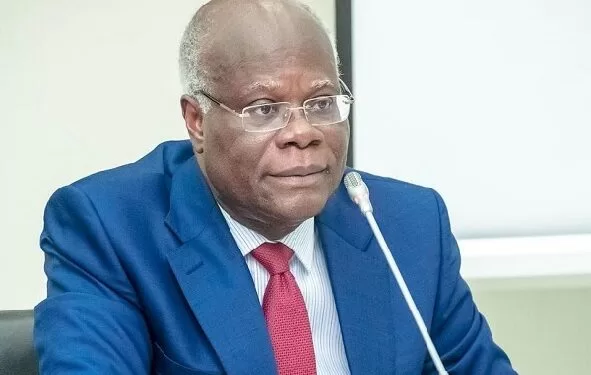Energy Minister Dr. Matthew Opoku Prempeh has asked investors and decision-makers gathered at North Africa and Europe Energy Exhibition and Conference (NAEPEC) to explore several opportunities in Ghana’s energy sector for the mutual benefit of both Ghana and the investors.
Speaking as a keynote speaker on the topic: “Ghana’s current Energy Sector initiatives, the global energy transition, and opportunities available in Ghana’s near–term initiatives and project”, the Minister said Ghana and for that matter Africa has suddenly become a new hotspot for oil and gas activities but at the same time has to compete for risk-capital in an industry whose very existence is being challenged by the Energy Transition agenda and the systematic shift in investments from fossil fuels to clean and renewable energy.
According to Dr. Prempeh Ghana’s energy sector is largely regulated by an energy policy that promotes sustainable development of the energy resources available in the country as well as the development of the requisite infrastructure. The policy he said also aims at achieving affordable and reliable energy for domestic and industrial consumption.
Energy Transition
In the Minister’s view, the global energy transition presents Ghana and the entire globe, with an opportunity to improve on existing policies and initiatives to foster the development of all sectors of economies through the provision of affordable and reliable energy and importantly, improve on even the quality of the air the world breathes.
“Our respective energy transition plans must therefore take into perspective all the sectors of our economies with deliberate efforts channelled at achieving decarbonisation, energy security, access and efficiency to accelerate industrialization and yet lower carbon dioxide emissions and energy demand,” he said
He continued “These issues have to be dealt with through policy and regulatory reforms, fiscal market development and incentives to achieve sustainable consumption and production of energy at national, subregional and continental levels”.
The Minister who is also the Member of Parliament for Manhyia South said Ghana’s US$562.00 billion Energy Transition Framework aims to provide the optimal and sustainable pathway for fuel supply security, diversified energy mix and cost-efficient electricity generation with an estimated medium to long term average electricity generation tariff of US$4.5cents/kwh to accelerate the socio-economic development of Ghana.
NEAR-TERM OPPORTUNITIES
The Minister said the transition framework implementation will lead to the creation of over 1.4 million new jobs and all of you here are invited to be part of Ghana’s energy transition story. “We require partnerships from the private sector to develop clean energy resources and the associated infrastructure through win-win transactions,” he said
“The establishment of a Petroleum Hub is one of the Government’s strategic private-sector led anchor initiatives that would serve as a new pillar of growth in the Ghanaian economy. This US$60 billion phased project will be a significant addition to Ghana’s economy, as the country would become a net exporter of petroleum products” he added.
He further said that natural gas has a critical role in our energy transition framework for power and non-power uses in the medium to long term and this is anticipated to come from domestic sources. “For us, natural gas shall be the transition fuel for electricity production, industrial heating and transport” he reiterated.
He continued “the establishment of the African Continental Free Trade Area (AfCTA) has undoubtedly created the largest free trade area in the world, measured by the number of countries participating. The pact creates a market of over 1.3 billion people across 55 countries with a combined GDP of approximately Four Trillion United States Dollars (US$4 trillion).
Dr. Prempeh emphasized that Ghana’s political stability and positive prospects certainly underpin the reason it hosts the headquarters of the African Continental Free Trade Area. This he says is certainly a catalyst for quick returns on investments as investors would be exposed to several markets on the African Continent if they pursue the opportunities in Ghana.

 Politics1 week ago
Politics1 week ago
 Business3 days ago
Business3 days ago
 Business3 days ago
Business3 days ago
 Health3 days ago
Health3 days ago
 Sports3 days ago
Sports3 days ago
 Politics3 days ago
Politics3 days ago
 Entertainment3 days ago
Entertainment3 days ago
 Business3 days ago
Business3 days ago













